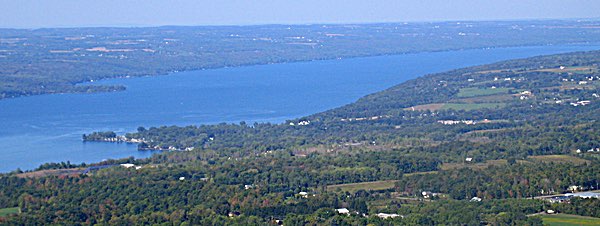- By New York State Governor's Office
- News
 Print
Print 
Governor Andrew M. Cuomo announced last week the Independent Advisory Committee on Applied Climate Assessment is releasing a report after being disbanded by the federal government in 2017, and reconvened by the Governor in 2018. The report includes recommendations to help federal, state, and local governments, communities, and the private sector plan for the effects of climate change.
"While the federal government continues to deny climate change and ignore the dire need to strengthen the resilience of our communities, New York and the U.S. Climate Alliance are taking action," Cuomo said. "Last year we proudly reconvened the advisory committee to put a spotlight on this global catastrophe, and this report will provide important recommendations to communities across the country as we work to address climate change."
Formerly known as the Federal Advisory Committee for the Sustained National Climate Assessment, the Independent Advisory Committee includes scientists and experts tasked with providing recommendations to help governments, communities, and the private sector improve data and analytical methods used in planning for the effects of climate change. In 2018, Cuomo reconvened the committee in coordination with the U.S. Climate Alliance so that its critical work could continue without political interference and provide the guidance needed to adapt to a changing climate.
Over the past year, the reconstituted group, comprised of 19 independent scientific and policy experts and headed by Dr. Richard Moss of the American Meteorological Society, developed a report and recommendations to help decision-makers better understand the effects of climate change on their communities, and to better evaluate information and plans as they prepare for those effects.
DEC Commissioner Basil Seggos said, "While the federal government continues to willfully ignore science, New York is taking action to reduce greenhouse gas emissions and increase sources of carbon-free energy. The Independent Advisory Committee is continuing its vital work advising our country to respond to climate challenges by bolstering the resilience of our communities. New York's efforts to reduce emissions and speed our transition to renewable energy will benefit our state with cleaner air, reduce our dependence on fossil fuels, and provide new jobs for New Yorkers."
The report, "A Civil Society Consortium for Conducting Applied Climate Assessments: Collaborations and Knowledge for Confronting Climate Risk," notes that in 2017 alone, severe climate-related events cost the United States roughly $306.2 billion in damages, shattering the previous U.S. annual record cost of $214.8 billion in 2005 - the year of Hurricane Katrina. The report also notes that significant efforts are underway in New York and elsewhere, but that worldwide, efforts to reduce greenhouse gas emissions are not taking place rapidly enough to stabilize atmospheric concentrations at safe levels.
The report's recommendations include establishing a formal independent consortium to serve as a clearinghouse and resource to support activities of state and local policy-makers and others to prepare for a changing climate. The consortium would foster the production of scientific information needed for climate change planning, develop tools and practices to meet shared challenges facing communities, set priorities for collective action, and facilitate the sharing of authoritative data and information. In addition, the report recommends this new consortium expand the scope of the current federal National Climate Assessment to include evaluation of the quality and effectiveness of information and tools being applied to inform climate change adaptation and mitigation. This new applied assessment would identify tested climate science practices, develop definitive data and methods, and provide feedback to the research community on knowledge gaps.
The Advisory Committee also identifies six opportunities that address specific needs and/or take advantage of promising methods and technologies. These opportunities include evaluating climate information for application; appraising adaptation and mitigation options; advancing climate indicator systems; harnessing artificial intelligence; applying citizen and community science; and using geospatial analysis methods to assess intersecting climate, environmental, and socioeconomic trends.
v15i14



